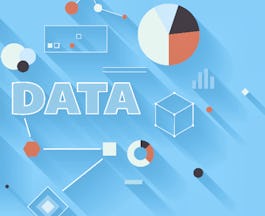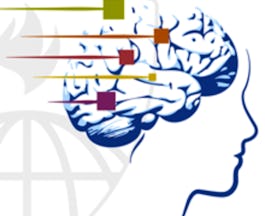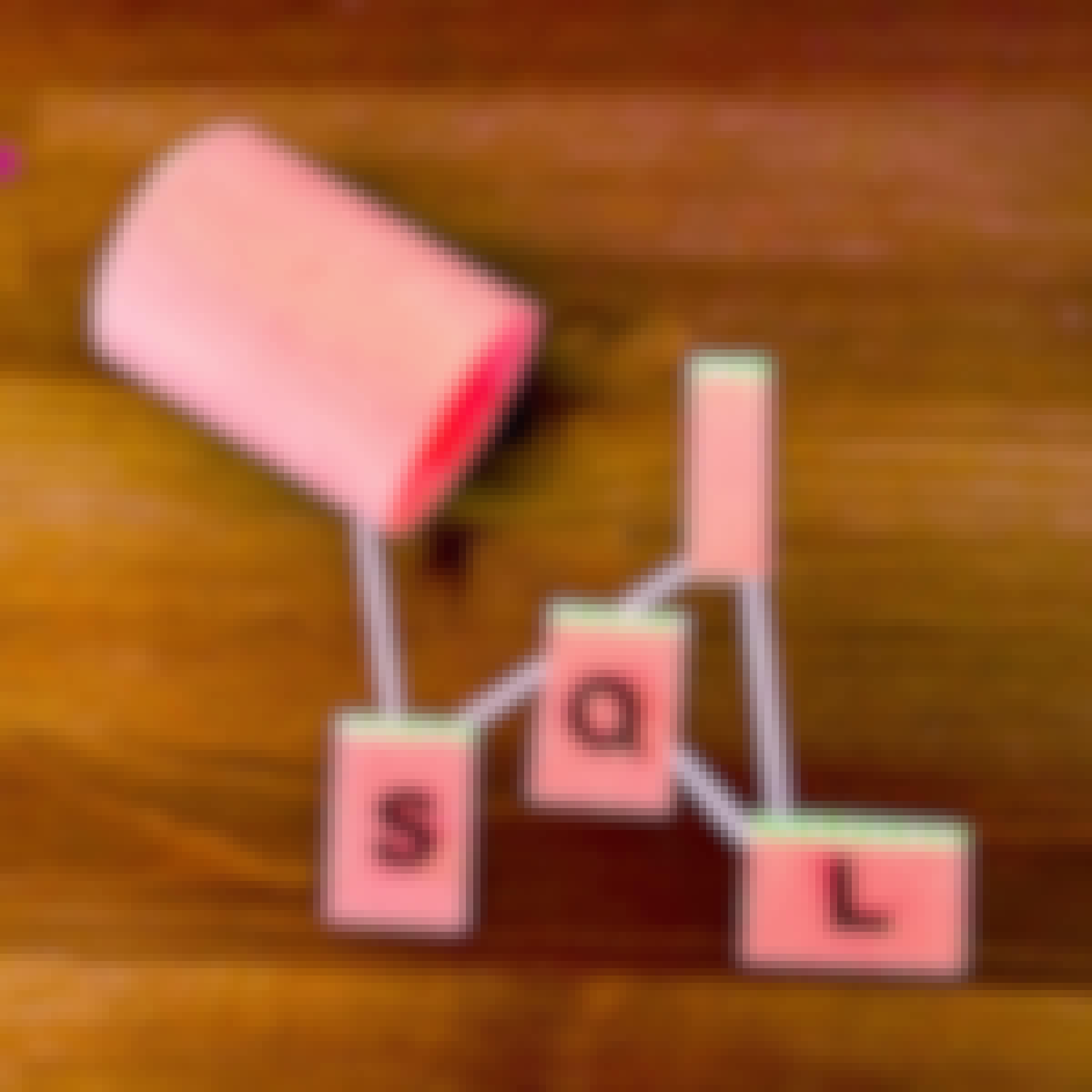Filter by
The language used throughout the course, in both instruction and assessments.
1,746 results for "database"

Skills you'll gain: Python Programming, Data Analysis, General Statistics, Probability & Statistics, Basic Descriptive Statistics, Statistical Analysis, Statistical Tests, Mathematical Theory & Analysis, Statistical Programming, Computer Programming, Data Analysis Software, Data Visualization, Data Science, R Programming, Data Management, Database Administration, Database Application, Databases, SQL, Cloud Computing, IBM Cloud

Meta
Skills you'll gain: Data Management, Django (Web Framework), Python Programming

Johns Hopkins University
Skills you'll gain: R Programming, Data Analysis, Statistical Programming, Statistical Analysis, Computer Programming, Exploratory Data Analysis, General Statistics, Problem Solving, Data Analysis Software, Probability & Statistics, Computer Programming Tools, Critical Thinking, Programming Principles, Statistical Tests, Data Management, Data Structures, Statistical Machine Learning, Basic Descriptive Statistics, Algorithms, Data Model, Human Learning, Machine Learning, Machine Learning Algorithms, Process Analysis, Correlation And Dependence, Data Visualization, Data Visualization Software, Plot (Graphics), Regression, Computer Graphics, Applied Machine Learning, Big Data, Computational Thinking, Estimation, Extract, Transform, Load, Probability Distribution, Databases, Interactive Data Visualization, Machine Learning Software, Communication, Computer Graphic Techniques, Knitr, Natural Language Processing, Visualization (Computer Graphics), Interactive Design, Product Development

Akamai Technologies, Inc.

University of Colorado System
Skills you'll gain: Data Warehousing, Data Management, Databases, Business Intelligence, Database Design, Data Model, Database Administration, Business Analysis, SQL, Data Analysis, Data Architecture, Warehouse Management, Data Visualization, Leadership and Management, Systems Design, Data Visualization Software, Extract, Transform, Load, Critical Thinking, Performance Management

Google
Skills you'll gain: Computer Networking, Network Architecture, Network Model, Networking Hardware, Network Analysis, Computer Architecture, Critical Thinking, Problem Solving, Communication, Human Computer Interaction, Network Security, Linux, System Security, Cloud Computing, Computer Programming, Customer Support, Cryptography, Leadership and Management, Operating Systems

Coursera Project Network
Skills you'll gain: Database Administration, Databases, SQL, Data Science

University of Michigan
Skills you'll gain: Database Design, Databases, SQL

Skills you'll gain: Data Model, Data Warehousing, Tableau Software

University of Michigan
Skills you'll gain: Databases, SQL

Duke University
Skills you'll gain: Big Data, Data Warehousing, Python Programming

University of California, Davis
Skills you'll gain: ArcGIS, Data Analysis, Data Visualization, GIS Software, Spatial Analysis, Spatial Data Analysis, Data Visualization Software, Databases, Geovisualization, Problem Solving, Leadership and Management
In summary, here are 10 of our most popular database courses
- Data Science Fundamentals with Python and SQL: IBM
- Database Clients: Meta
- Data Science: Johns Hopkins University
- Managing Relational Databases: Akamai Technologies, Inc.
- Data Warehousing for Business Intelligence: University of Colorado System
- Google IT Support: Google
- Advanced Relational Database and SQL: Coursera Project Network
- Introduction to Structured Query Language (SQL): University of Michigan
- Advanced Data Modeling: Meta
- Building Database Applications in PHP: University of Michigan










